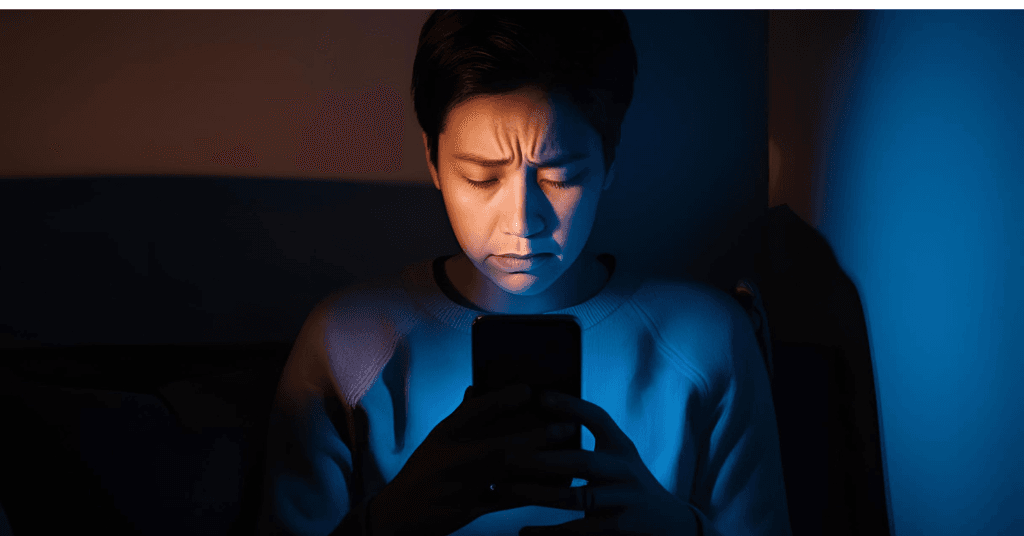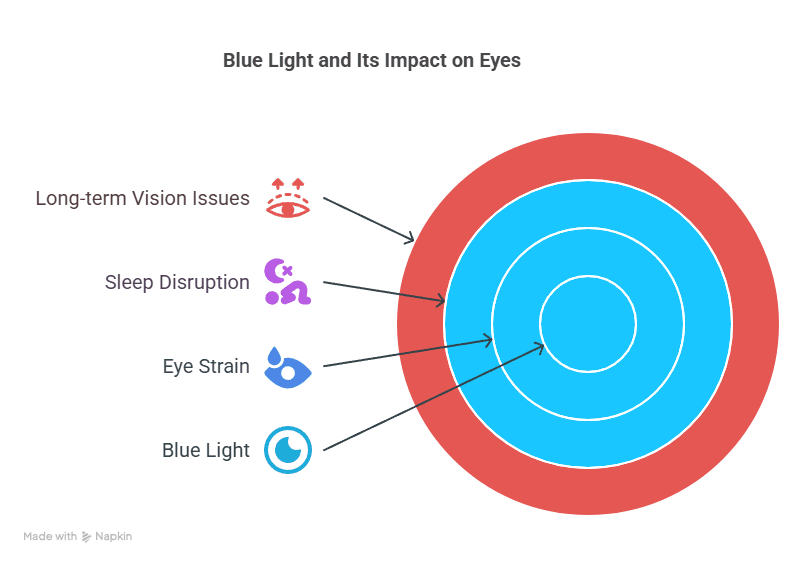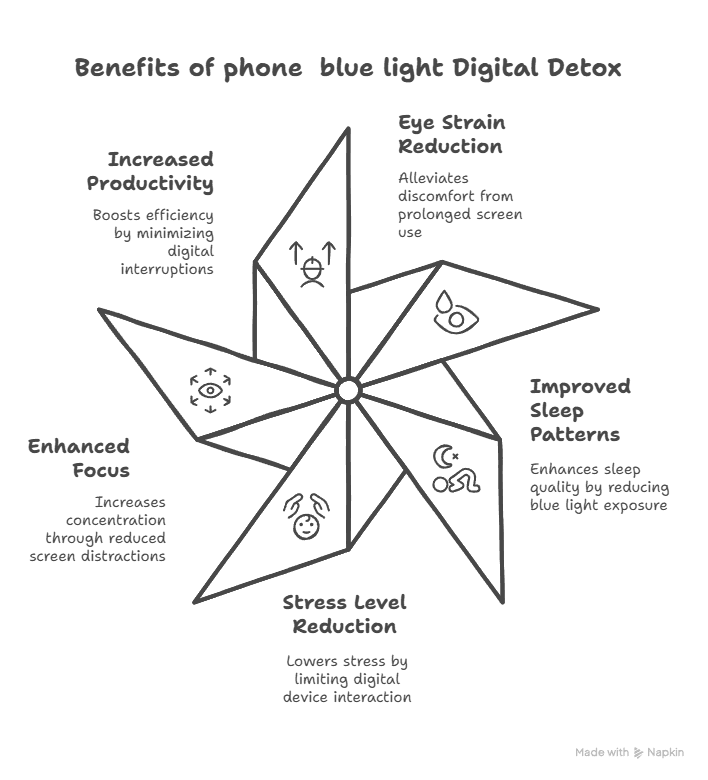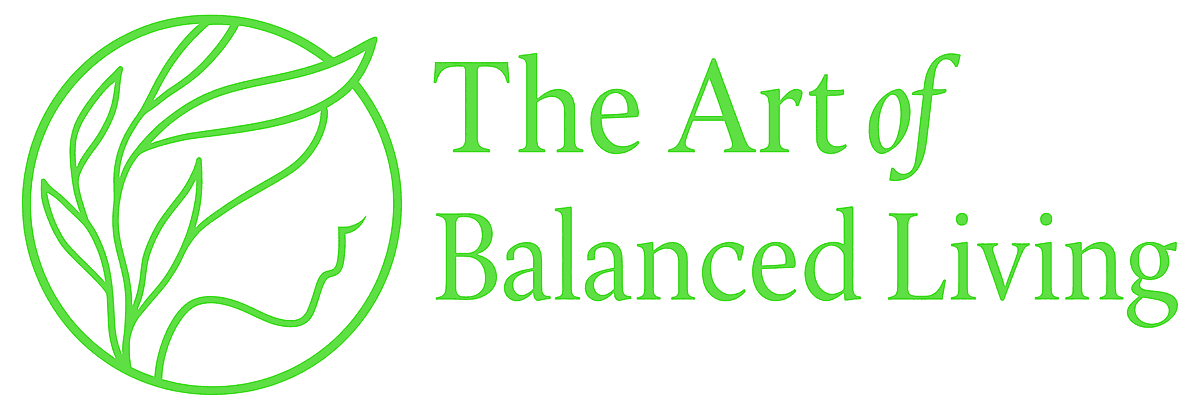What is phone blue light and how is excessive use harmful to us
Phone blue light is the high-energy visible (HEV) light that digital screens, like computers, phones, and tablets, give off. Blue light has shorter wavelengths than other types of light, which lets it reach deeper into the eye. Blue light from the sun during the day helps keep our sleep-wake cycles in balance.
But too much time in front of a screen, especially at night, can keep you up at night and cause digital eye pain.
High energy: Blue light has extra energy because its bands are short.
It can reach the retina and may do damage that lasts for a long time.
Blue light main Sources Digital screens and LED lights are the main sources.

What Blue phone Light Is Made Of
To understand how phone blue light affects our health, we need to know what it looks like. There are different types of visible light, but blue light has the smallest wavelengths and the most energy.
Because of this, it can go deeper into the eyes and reach the retina. During the day, blue light helps keep our circadian rhythms in balance. But at night, too much exposure can be bad for your health and cause several problems.
Wavelength and Energy: Blue light has a short wavelength and a lot of energy, which makes it more intense.
Source: Devices like computers, smartphones, and LED lights give off this gas.
Structure of phone and other gadgets blue light
Phone blue light refers to the high-energy visible (HEV) light that falls within the blue spectrum, typically ranging from 380 to 500 nanometres. This type of light is emitted by various digital screens, including smartphones, tablets, computers, and televisions.
While blue light is a natural part of sunlight and plays a crucial role in regulating our circadian rhythms, excessive exposure to artificial blue light from screens can lead to various health issues.
To understand how phone blue light affects our health, we need to know what it looks like. There are different types of visible light, but blue light has the smallest wavelengths and the most energy. Because of this, it can go deeper into the eyes and reach the retina. During the day, blue light helps keep our circadian rhythms in balance. But at night, too much exposure can be bad for your health and cause a number of problems.
Wavelength and Energy: Blue light has a short wavelength and a lot of energy, which makes it more intense.
Source: Devices like computers, smartphones, and LED lights.
How does phone Blue Light affect to Our Health
Many health issues can happen when you are exposed to too much phone blue light.
First, excessive exposure to blue light can lead to digital eye strain, a condition that causes discomfort and itching in the eyes.
Blue light also makes it difficult to sleep because it stops the production of melatonin, a hormone that controls sleep. Being exposed to blue light for a long time may even damage the eye, which raises the risk of age-related macular degeneration.
Dry eyes, itching, and blurred vision can happen after staring at a screen for a long time.
messed-up sleep patterns: stop the production of melatonin, which makes it harder to fall asleep.
Damage to the retina: Long-term exposure may raise the chance of eye diseases like macular degeneration.
Skin Ageing: Blue light can cause reactive stress, which makes skin wrinkle and age faster.

Why a phone digital detox is important
During a phone digital detox, you intentionally spend less time in front of screens to lower your blue light exposure. These breaks help people feel better overall and relieve worry and anxiety. A daily digital detox can also help your eyes and sleep by giving your eyes a break from staring at screens for long periods of time.
Better Sleep: Spending less time in front of a phone blue light screen before bed helps your body make melatonin naturally.
Better mental health: Taking breaks from screens makes you less anxious and less mentally tired.
Focus and productivity go up: detoxing regularly helps you stay focused and sharp.
Eye Relief: Eases the pain and strain that come from staring at a screen for long periods of time.

How to Reduce Your Exposure to Blue Light
Here are some simple things you can do to reduce your exposure to phone blue light. Using blue light filters on your devices, changing the settings on your screens, and doing simple eye care habits can all help your eyes stay healthy and help you sleep better.
Use Blue Light Filters: Turn on night mode or get apps for your devices that block blue light.
Remember the 20-20-20 Rule: every 20 minutes, take a 20-second break and look at something 20 feet away.
Cut Down on phone blue light Screen Time Before Bed: To sleep better, stay away from screens for at least an hour before bed.
Change the lighting: To cut down on blue light in the evening, use lighting with warmer tones.
Too much screen time doesn’t just hurt your eyes it steals your sleep and energy. Start small: try a daily digital detox and protect your eyes with blue-light-blocking glasses.
Check our recommended Lenskart BLU Zero Power Glasses on Amazon lightweight, anti-glare, and perfect for work or gaming.
What Blue Light Does to Skin Health
Not only is blue light bad for your eyes and sleep, but it’s also bad for your skin. According to research, being exposed to blue light for a long time can cause oxidative stress, which can damage the skin. This can speed up the ageing process and lead to lines, hyperpigmentation, and collagen breakdown.
Oxidative Stress: Free radicals are made by blue light, which hurts the skin.
Hyperpigmentation: Long-term contact can make your skin get dark spots or an uneven colour.
Breakdown of Collagen: Blue light speeds up the breakdown of collagen, which causes lines and wrinkles.
Protecting Your Health in a Digital World: Smartphones and other digital devices have many uses, but it’s important to know the risks of being exposed to blue light for long periods of time. You can protect your eyes, skin, and sleep by learning about blue light from your phone and how it affects your health. You can also do things like a digital break. Using blue light screens and taking breaks often are two simple habits that can make a huge difference in your health in a world that is becoming more and more digital.
FAQ SECTION
What does blue light mean?
A1: Digital screens, LED lights, and other manufactured light sources give off blue light, which is a type of high-energy visible (HEV) light. It is more powerful and has shorter bands than other kinds of light.
What does blue light do to sleep?
A2: Blue light stops the production of melatonin, the hormone that controls sleep. This makes it harder to fall asleep and stay asleep at the same time every night.
Can blue light make your eyes tired?
A3: Yes, long-term exposure to blue light from computers can cause digital eye strain, which includes dryness, irritation, blurred vision, and trouble focusing.
What is a digital detox?
A4: Taking breaks from screens is part of a digital detox that can help your health and lower your exposure to blue light. It makes sleep better, lowers stress, and keeps your eyes from getting tired.
Final Thought
We’re not saying ditch your phone—just be smarter with it. The blue light coming off your screen may seem harmless, but over time, it quietly messes with your sleep, your eyes, and even your focus. Give your body a rest, particularly during the night. You’ll sleep better, feel calmer, and trust me—your future self will thank you for it.
Download Your Free 7-Day Digital Detox Tracker (PDF)
Download the Digital Detox Guide 79 pages of simple steps to beat blue light, restore deep sleep, and wake up energized.
Disclaimer & Affiliate Disclosure: This content is for informational purposes only and is not a substitute for professional advice. Some links may be affiliate links, which means we may earn a small commission at no extra cost to you.
